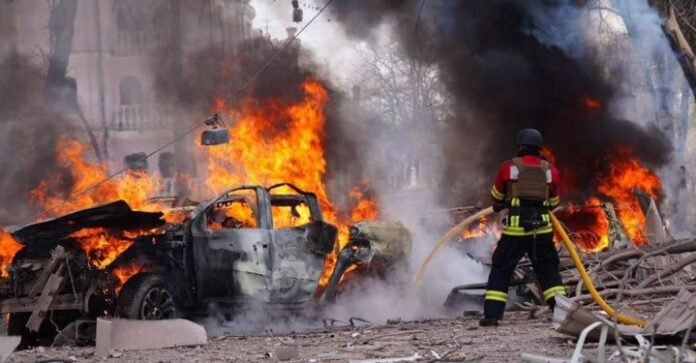In a bold move to influence U.S. foreign policy and ensure comprehensive understanding of Ukraine’s plight, President Volodymyr Zelensky has extended a personal invitation to former President Donald Trump to visit Ukraine. This invitation comes at a critical juncture, as discussions about ending the ongoing conflict with Russia intensify. Zelensky’s appeal aims to provide Trump with an unfiltered view of the war’s devastating effects on Ukrainian civilians and to underscore the complexities involved in negotiating peace with Russia.
The Invitation and Its Significance
President Zelensky’s invitation is not merely a diplomatic gesture; it is a strategic attempt to bridge the gap between U.S. political rhetoric and the harsh realities on the ground in Ukraine. By inviting Trump, Zelensky seeks to:
- Highlight the Humanitarian Crisis: A firsthand experience of the destruction and human suffering caused by the conflict may prompt a more empathetic and informed approach to U.S. policy decisions.
- Clarify Misconceptions: Direct exposure to the situation could dispel any misconceptions or oversimplified narratives about the conflict’s nature and Ukraine’s position.
- Influence Peace Negotiations: With Trump positioning himself as a potential mediator who could swiftly end the war, Zelensky aims to ensure that any proposed solutions are grounded in the lived experiences of those affected.
Zelensky’s Concerns Over Proposed Peace Plans
Zelensky has expressed skepticism regarding some proposed peace plans, particularly those suggesting territorial concessions to Russia. He warns that ceding territory might not lead to lasting peace and could embolden further aggression. In a recent interview, Zelensky stated:
This sentiment reflects a broader concern that quick-fix solutions may overlook the long-term implications for Ukraine’s sovereignty and regional stability.
Trump’s Stance and the U.S. Political Landscape
Former President Trump has claimed that, if re-elected, he could end the conflict within 24 hours through direct negotiations with Russian President Vladimir Putin. He stated:
However, critics question the feasibility of such rapid resolutions and the potential costs involved. The U.S. political landscape is also divided on continued support for Ukraine, with some lawmakers advocating for reduced aid and others emphasizing the strategic importance of backing Ukraine against Russian aggression.
The Human Toll of the Conflict
The urgency of Zelensky’s invitation is underscored by the human toll the conflict has taken. A recent Russian missile strike on the city of Sumy resulted in the deaths of at least 34 civilians and injuries to over 100. This attack has been widely condemned as a war crime and has intensified calls for stronger international intervention.
European leaders have expressed outrage over the attack, with French President Emmanuel Macron and German Chancellor-in-waiting Friedrich Merz labeling it a serious war crime. The incident has reignited debates about the effectiveness of current peace efforts and the need for more decisive action.
The Role of Media and Public Perception
Zelensky has also voiced concerns about the influence of media narratives on public perception, particularly regarding U.S. political figures’ stances on the conflict. He has accused certain media representatives of promoting Russian narratives, which he believes distort the reality of the situation. This highlights the challenge of ensuring that policy decisions are based on accurate and comprehensive information.
The Path Forward
As the conflict continues to devastate Ukraine, the need for informed and empathetic leadership is paramount. Zelensky’s invitation to Trump serves as a reminder of the complexities involved in international diplomacy and the importance of understanding the human cost of geopolitical decisions.
For Trump, visiting Ukraine could offer invaluable insights into the realities of the conflict and the challenges of negotiating peace. It would provide an opportunity to move beyond political rhetoric and engage with the lived experiences of those affected by the war.
For the international community, this development underscores the need for renewed commitment to supporting Ukraine and pursuing diplomatic solutions that uphold its sovereignty and territorial integrity. It calls for a reassessment of strategies to ensure that peace efforts are not only swift but also just and sustainable.
Conclusion
President Zelensky’s invitation to former President Trump is a strategic and heartfelt appeal to bridge the gap between political discourse and the lived realities of war. It serves as a call to action for leaders worldwide to engage deeply with the complexities of the Ukrainian conflict and to pursue peace solutions that are informed by empathy, understanding, and a commitment to justice. As the situation evolves, it remains crucial for all stakeholders to prioritize the well-being and sovereignty of the Ukrainian people in their pursuit of lasting peace.

